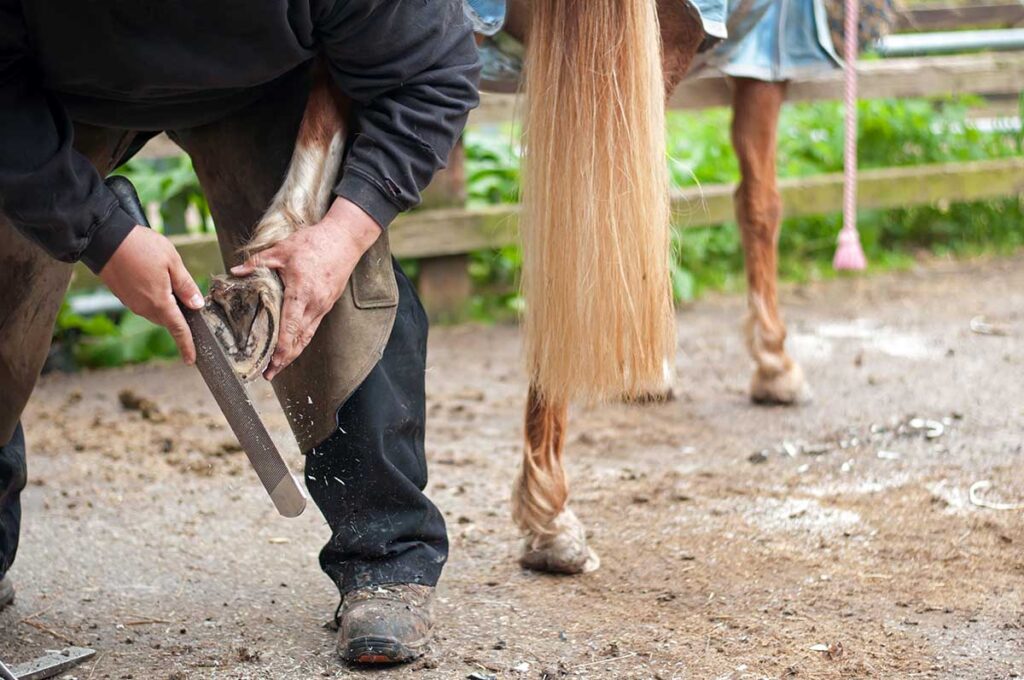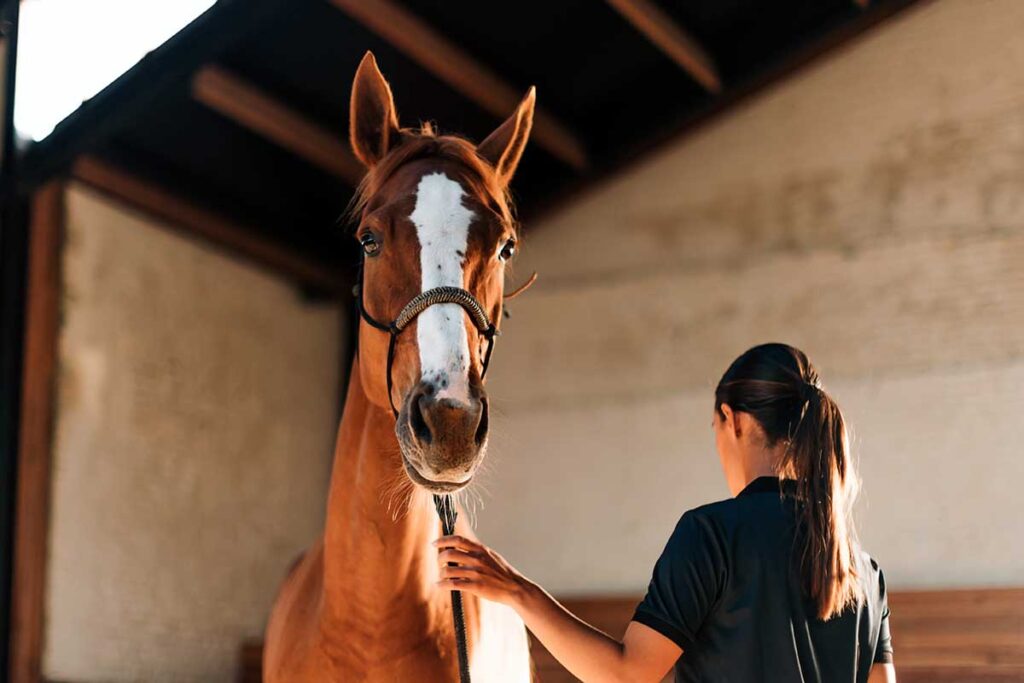Horse ownership is a team effort between you and your trainer, farm owner or staff, farrier, and, importantly, your veterinarian. Equine veterinarians play crucial roles in keeping horses healthy. You’ll need to find and build a relationship with a local veterinarian who can administer routine care (e.g., vaccinations, wellness exams) and respond quickly when your horse is sick or injured. Your veterinarian is also a valuable resource if you have questions about your horse’s health or he seems “not quite right.” Here’s how to find an equine veterinarian if you don’t have one.
Where To Start
If you keep your horse at a boarding barn, the owner or trainer might already have a preferred veterinarian who looks after all the horses on the property. You might choose to have this vet care for your horse, too.
Otherwise, how do you find a reputable vet for your horse? Word of mouth and recommendations from other equestrians or industry participants can be useful. Ask your farrier, trainer, and trusted horse owners and breeders in your area for reliable veterinary contacts. You can also search online for equine vets in your area; look for reviews and ratings that will give you an indication of quality care.
The American Association of Equine Practitioners (AAEP) also has a directory of equine vets you can search by city, state, and ZIP code.
Narrowing Down Your List
If you have several practitioners or clinics in your area to choose from, do some research and decide what type of veterinarian you want to work with. From practice websites you should be able to determine how much experience a veterinarian has, whether they’re a solo practitioner or part of a large multi-vet clinic, and where their specialty lies. Vets with credentials such as Dipl. ACVS, ACVIM, or ACVSMR, behind their names, for instance, have advanced degrees in surgery, internal medicine, and sports medicine, respectively. You might prefer the availability and variety of specialties offered at a large clinic. Or you might prefer a solo vet you connect with and who will get to know your horse well.
Reaching Out
When you find a veterinarian you’d like to work with, contact them or their practice and ask the following questions:
- Are they taking new clients?
- Where is their service area, and is your barn within that radius?
- What are their fees for farm calls, wellness exams, and emergencies?
- What are their hours? Some clinics offer 24/7 emergency services, while solo practitioners might work set hours.
You might also ask more specific questions about services that are important to you, such as telemedicine offerings or a wellness program you can enroll in to ensure your horse stays up to date on preventive care.
Are you enjoying this content? Sign up for My New Horse’s FREE newsletter to get the latest horse owner info and fun facts delivered straight to your inbox!








